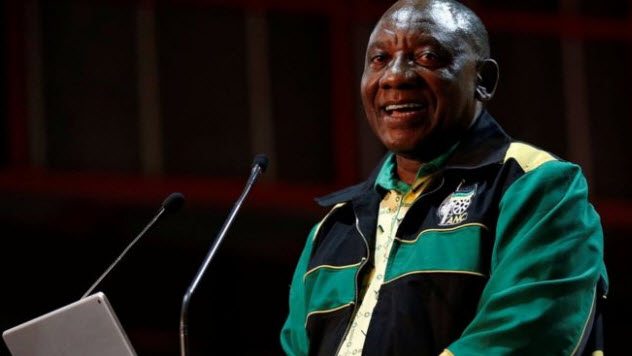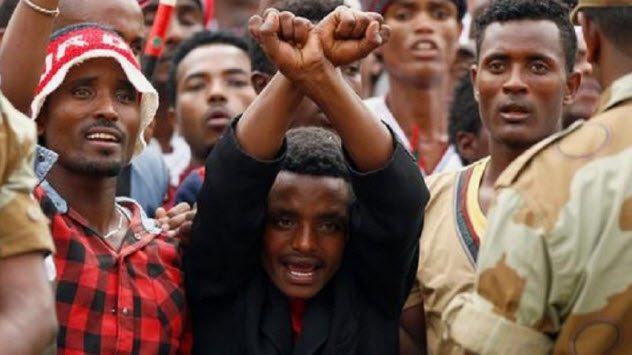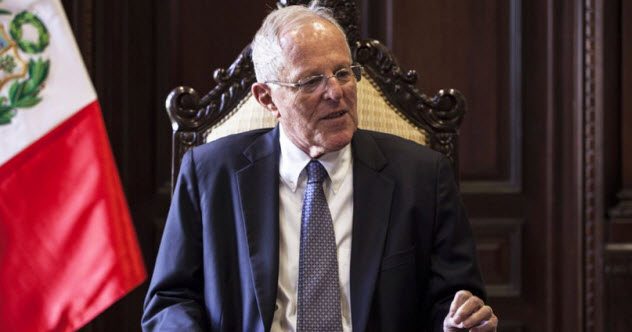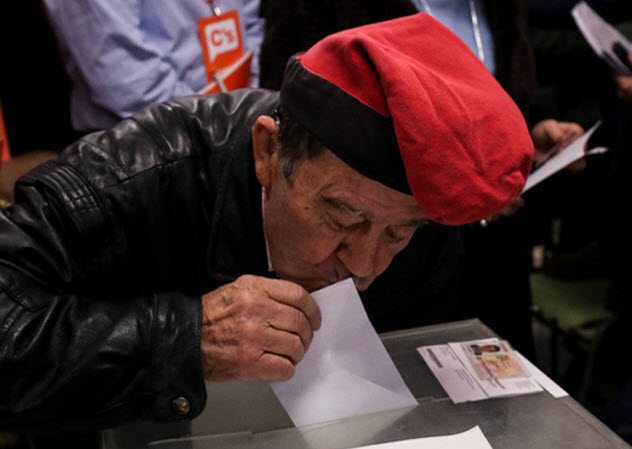 Religion
Religion  Religion
Religion  Facts
Facts 10 Things You Never Knew about the History of Gambling
 Weird Stuff
Weird Stuff 10 Cool and Creepy Facts about Collecting Tears
 Humans
Humans The Ten Most Lethal Gunslingers of the Old West
 Misconceptions
Misconceptions 10 Phony Myths and Urban Legends That Just Won’t Die
 History
History 10 Amazing Roman Epitaphs
 Weird Stuff
Weird Stuff 10 Niche Subcultures That Are More Popular Than You Might Think
 Mysteries
Mysteries 10 Tragic Disappearances and Deaths in Joshua Tree National Park
 History
History 10 Ways Childhood Really Sucked in the Old West
 Music
Music 10 Name Origins of Famous Bands from the 1990s
 Religion
Religion 10 Mind-Blowing Claims and Messages Hidden in the Bible Code
 Facts
Facts 10 Things You Never Knew about the History of Gambling
 Weird Stuff
Weird Stuff 10 Cool and Creepy Facts about Collecting Tears
Who's Behind Listverse?

Jamie Frater
Head Editor
Jamie founded Listverse due to an insatiable desire to share fascinating, obscure, and bizarre facts. He has been a guest speaker on numerous national radio and television stations and is a five time published author.
More About Us Humans
Humans The Ten Most Lethal Gunslingers of the Old West
 Misconceptions
Misconceptions 10 Phony Myths and Urban Legends That Just Won’t Die
 History
History 10 Amazing Roman Epitaphs
 Weird Stuff
Weird Stuff 10 Niche Subcultures That Are More Popular Than You Might Think
 Mysteries
Mysteries 10 Tragic Disappearances and Deaths in Joshua Tree National Park
 History
History 10 Ways Childhood Really Sucked in the Old West
 Music
Music 10 Name Origins of Famous Bands from the 1990s
10 Mind-Blowing Things That Happened This Week (12/22/17)
Keeping up with the news is hard. So hard, in fact, that we’ve decided to save you the hassle by rounding up the most significant, unusual, or just plain old mind-blowing stories each week.
The last week before Christmas was dominated in the US by the Trump administration’s first major legislative victory. More on the White House’s generation-defining tax rewrite below alongside a quick glimpse at all the other big stories on display this week. From political upsets in Africa to scientific leaps to tragedy in Asia, the week leading into the holidays was defined mostly by how busy it was.
10 SpaceX Successfully Sent A Recycled Rocket To The ISS

Sometimes, the biggest ideas are also the simplest. Such may be the case with Elon Musk’s brainstorm to create a reusable space rocket.
Prior to SpaceX, launching a mission meant building a gigantic rocket, using it once, and then letting its wreckage tumble to Earth. Musk likes to compare this to building a brand-new airplane every time you wanna fly to New York. It was expensive and heavily restricted humanity’s ability to explore the final frontier.
In 2015, the company finally managed to land a reusable rocket after launching it into space. (Blue Origin achieved the same feat a couple of months earlier, but their rocket peaked at a much lower altitude.) It was a huge scientific leap but only a proof of concept. The company still needed to use these recycled rockets in an actual mission.
Last Friday, Musk did just that. A reused SpaceX Falcon 9 rocket and a reused Dragon capsule were both sent up on a NASA mission to the ISS.[1] Their success shows that we may finally be entering a new age of space travel, one where missions to orbit or even to Mars are far cheaper than we could ever have dreamed.
9 Congress Passed The Biggest US Tax Overhaul In A Generation

For all the media’s relentless focus on Washington, actual significant legislation passed on Capitol Hill this year has been thin on the ground. Obamacare repeal collapsed. The Mexican border wall couldn’t get funded. Budgets were voted down. Executive orders were challenged in court. For all the seismic shock of the 2016 election, it seemed like we were still stuck in Congress’s default position of gridlock.
This week, that all changed for better and for worse. In a frenzy of activity, the Republican-controlled House and Senate managed to push through the biggest tax overhaul in 30 years. Corporate taxes will be slashed, and individuals at all income levels will receive a tax cut.
The plan is the brainchild of Paul Ryan, who has staked his reputation on this overhaul generating unprecedented growth. However, his bill is not without controversy. By some estimates, it will add at least $1 trillion to the deficit over 10 years, although that doesn’t take into account any economic growth as a result of the tax cuts. Realistically, no one knows exactly how much this will cost.
This plan may also break World Trade Organization rules. Europe has already signaled that it’s gearing up for a fight on the issue. If you thought the prospect of a US-China trade war was unedifying, a US-EU tax war could be even worse.[2]
8 One Of K-Pop’s Biggest Stars Committed Suicide

Just last week, 27-year-old Kim Jong-hyun was one of the biggest stars in the world. Singer in South Korean K-pop group SHINee, he had legions of devoted fans. Affable, easygoing, and (of course) a legendary heartthrob, he seemed to have it all.
Which just goes to prove how deceptive looks can be. On Monday, the troubled young singer committed suicide at an exclusive Seoul hotel. His death—and suicide note subsequently published on Instagram by his friend and fellow popstar Nine9—shined a light on the destructive and often horrific practices of the K-pop industry.
South Korea has one of the highest suicide rates of the developed world. Many attribute this to an insanely high-pressure society where exceptionally hard work for little reward is the norm and failure is a source of personal shame.
K-pop is like this on steroids. Artists often have their personal lives minutely controlled by borderline sadistic managers, while hungry fans look for any sign of “impropriety” (including such “crimes” as having a girlfriend or boyfriend) and destroy those they catch.
It’s hoped that the tragedy of Kim may finally cause these practices to change.[3]
7 Two Major Rape Trials In London Collapsed Due To Police Failings

Two years. That’s how long Liam Allan, now 22, lived in fear of his life being destroyed. A college student in London, Allan was accused of rape by a classmate. His case went to trial this week, and he faced up to seven years in prison and his name being placed on the sex offenders’ register.
There was just one problem. Allan was innocent. The London Metropolitan (Met) Police had spent two years sitting on evidence that would have proved this.
Allan’s accuser had sent thousands of messages to a friend proving their encounter was consensual. The Met had accessed these messages but covered up their existence.[4]
This would be bad enough, but Allan wasn’t alone. Only days after his trial was called off, the separate trial of Isaac Itiary for child rape collapsed for similar reasons. The Met is now reviewing all active assault cases. For his part, Allan is suing the police.
Reports paint a picture of a police culture where officers are forced to chase conviction targets. It’s true that rape convictions remain abysmally low. It’s also true that allowing innocent people to be jailed is a despicable way to address this.
6 South Africa’s Ruling ANC Party Elected A New Leader

A mafia state. These words describe South Africa’s fall under the ruling ANC party from vibrant democracy to corrupt gangster haven. The ANC is the party that gave us Nelson Mandela. It was once one of the most respected organizations in Africa.
Then came Jacob Zuma. Under his watch, the ANC has leaped into the trough with a gusto most actual pigs would find embarrassing. Politics, big business, and criminal enterprises have become entwined in a way that threatens to bleed the nation dry. To call Zuma’s leadership a failure would be to underplay the moral black hole residing at the ANC’s heart.
This week, the ANC itself seemed to finally recognize this. In an election to choose its new leader, it spurned Jacob Zuma’s former (and still loyal) wife, Nkosazana, in favor of old Mandela ally Cyril Ramaphosa. If Ramaphosa becomes president at the next election, it’s hoped that he can save South Africa from his own party.
Ramaphosa is uniquely well-qualified. He has connections with trade unions, with business, with apartheid activists, and with Dutch-descended whites. Yet some worry that the party is too far gone to save. Sadly, Ramaphosa may turn out to be a messiah made of clay.[5]
5 Deadly Ethnic Violence Returned To Ethiopia

The last time ethnic clashes took place in Ethiopia’s Oromiya region in 2015–16, up to 1,000 people died. Although those demonstrations eventually quieted down, the tensions bubbling away beneath the surface didn’t disappear. This week, they boiled over into violence again. Ethnic Oromos and Somalis went on the rampage, slaughtering one another. By the time the dust settled, over 60 were dead and tens of thousands displaced.[6]
The violence is a queasy reminder that Ethiopia is becoming increasingly unstable. A multiethnic state simmering with grievances, the potential has long been there for it to collapse as dramatically and as violently as Yugoslavia.
There’s resentment at the ruling Tigray group, a minority who have been accused of suppressing Oromo and Amhara culture. The Oromo (Ethiopia’s biggest group) have been accused of ethnic crimes against the tiny Somali minority. In many regions, local police and lawmakers have turned a blind eye to ethnic killings, occasionally even encouraging the slaughter.
Ethiopia is the African horn’s biggest regional power, surpassing even Kenya. A collapse of government control would create a disaster. This renewed violence is already threatening to destabilize the nation. Let’s hope it remains only a threat.
4 The Pentagon Admitted To Running A Secret UFO Program

It’s no secret that the federal government has taken an interest in UFOs over the years. Just Google “Roswell” if you need to start somewhere. But the official line has long been that all these programs were shut down many years ago.
This week, we discovered different. Between 2007 and 2012, the Pentagon was revealed to have been running a clandestine multimillion dollar program, all aimed at proving the existence of UFOs.[7]
The plan was conceived and authorized by former Senator Harry Reid, who’s known for being more than a little space obsessed. It also just happened to funnel most of the money to Reid’s good friend Robert Bigelow, who runs an aerospace company.
Despite the bad optics of this, Reid insists that the tender process was fair. He also insists that the program uncovered evidence of an alien presence on Earth.
Videos and audio of impossible-seeming aircraft have emerged, and Reid has claimed that Bigelow’s company is holding inexplicable futuristic technology and metal alloys in a Vegas compound. Scientists, however, remain skeptical.
3 Peru Voted On Impeaching Its President

The Carwash scandal is the biggest political crisis you’ve probably never heard of.
It came to light in Brazil in 2013 when money launderer Alberto Youssef was arrested and spilled the beans on a massive operation of kickbacks and corruption centered on the state-run energy company, Petrobras. (Some money was laundered through a car wash, hence the name.) The scandal reached deep into the murky world of Brazil’s elite, and its unraveling in 2014 caused political chaos.[8]
Since then, South American construction giant Odebrecht has also been caught up in the investigation, with 77 of its executives jailed. Odebrecht was even bigger than Petrobras, and its corrupt antics involved wooing politicians all across South America. Twelve countries are implicated in what’s been called the biggest bribery ring in history. Now, the scandal has found its biggest target yet: Peru’s president.
President Kuczynski was recently revealed to have benefited from $800,000 that Odebrecht paid to a company he owns. Some of that money was paid while he was finance minister, potentially creating a conflict of interest. No sooner had the story broken than Peru’s congress began impeachment proceedings.
This isn’t just a straight-up morality tale. The conservative opposition party, Popular Force, has been gunning for Kuczynski since he was elected. The shocking speed of Thursday’s impeachment vote has caused some to call it a disguised coup. The danger is that Peru could be paralyzed by the ensuing political chaos.
2 Catalonia’s Crisis Entered Its Newest Phase

One of the big, unresolved news stories this year has been the Catalonia crisis. Back in October, residents of the autonomous Spanish region voted overwhelmingly for independence from Spain.
However, the referendum was deeply flawed, suffered from low turnout, and was marred by police violence. Madrid declared the poll illegal, dissolved Catalonia’s government, and threatened to impose direct rule.
In the months since, the crisis has remained in the news. (A quick look back at the archive reveals that this column has covered it seven times, more than any other story this year except the Trump-Russia investigation.) But resolution has been scarce. This Thursday, Catalonians went to the polls again to choose their new government. What was meant to offer clarity just restated the region’s problem.[9]
At the time of this writing, the final vote tallies aren’t in. But the polls are pointing to a nearly even split between pro-independence and pro-union parties. Unless there has been a major upset we didn’t foresee, it seems that the latest election will just create more uncertainty on the biggest issue facing Spain since the death of Franco.
1 We May Have Finally Solved One Of France’s Most Mysterious Murders

It was a quiet afternoon in 2012 when a mysterious gunman opened fire on the lonely French mountain road, riddling Saad al-Hilli’s car with bullets. Iraqi-born British citizen Al-Hilli, his wife, and her mother were killed, as was a French cyclist who just happened to pass at the wrong time. Al-Hilli’s daughters both miraculously survived, although one was seriously wounded.
For a long time, it was thought that the massacre was connected to al-Hilli’s past. He worked on sensitive technology and may have had financial links to Hussein-era Iraqi elites. But investigations turned up nothing.
Until now. On Thursday, French police announced that ex-soldier Nordahl Lelandais—currently being held for another crime—was being questioned. It’s thought that he may have been single-handedly responsible for many unsolved murders in the region.[10]
Lelandais has been linked by DNA to the disappearance of a nine-year-old girl. Data trawls have revealed that he searched for how to dispose of human bodies the night that a local soldier was murdered. It’s now thought that the ex-soldier may have been operating as a serial killer for years. If so, al-Hilli’s family died for no other reason than having the bad luck to cross his path.
Missed the news lately? Catch up on more mind-blowing events from December 15, 2017, and December 8, 2017.








